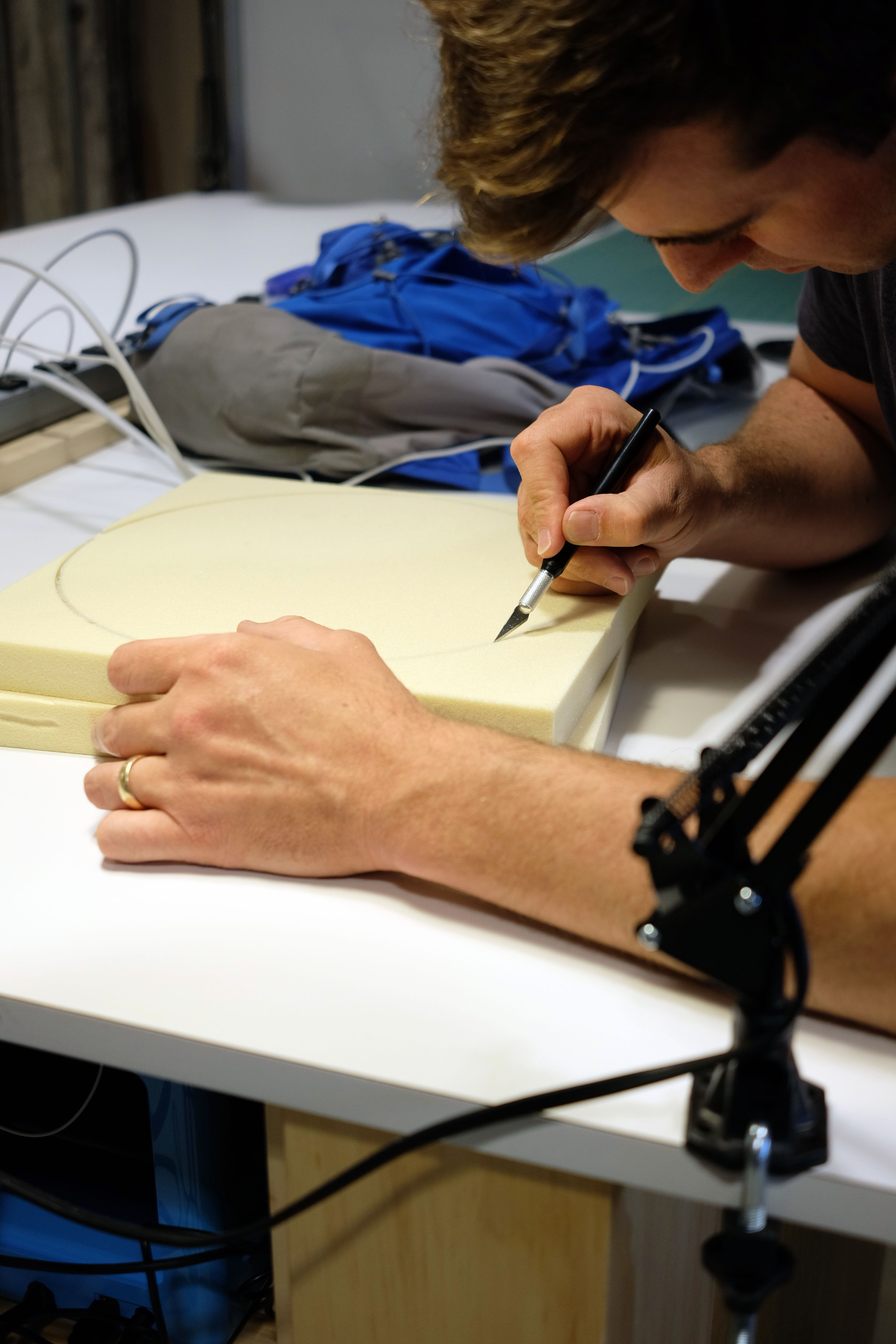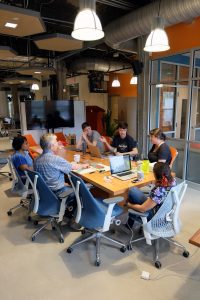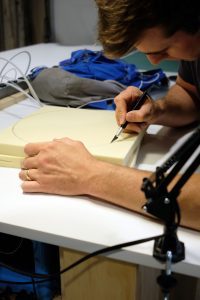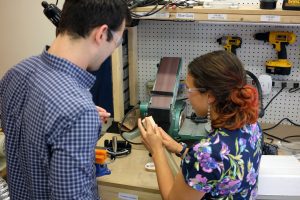
Summer 2016 Hardware Accelerator: Sprint 1 Recap
How do you take an idea from napkin to prototype? The Hardware Accelerator program at Rev: Ithaca Startup Works, now in its second year, is guiding eight teams toward the answer to this question.
The 11-week program kicked off May 29 with a prototyping Bootcamp. Teams learned over a dozen techniques for sketching, modeling, and electronics prototyping. Weeks two through ten are broken up into three design sprints: feasibility, proof-of-concept, and prototyping. The culmination of the program is Demo Day; teams will pitch and exhibit their projects to an excited crowd. Last year’s Demo Day drew over 150 attendees, including elected officials.
Although all teams are hardware-focused, the range of technologies and applications is diverse. One team is developing a clock for children who want more independence, while another is working on an electric skateboard for skaters who do tricks. Team members from as far away as India are developing an orthopedic brace for patients who monitor their own progress. To see a full list of team projects, click here.
To serve teams with such a wide range of diverse ideas, Rev’s Hardware Accelerator needs to cover a spectrum of skills, from organization to agile development process. To provide such a variety of workshops, Rev has pulled in speakers and mentors from many industries. This year, teams also have access to weekly meetings with Entrepreneurs in Residence (EIRs) who possess insight into their particular industry and who guide teams through their business models and assist them in conducting field research with customers.
We were fortunate to host the talented industrial designer Alan Kwok for our Bootcamp week, before he headed off to South America. He led our teams through workshops on sketching, foam core board and foam modeling, vacuum forming, and an overview of production possibilities for teams thinking about manufacturing down the line. Alan left us with the understanding that your model does not need to be functional, sleek, or even complete to help you gain useful design insights. Low-resolution models can propel a team forward in the design process and save a lot of time further down the road.
Brendon Jackson, a returning Hardware Accelerator tech instructor and Cornell electrical engineer, helped the teams familiarize themselves with electronics options available in the Rev prototyping shop. We began with EagleCAD circuit design software, which allows teams to design and mill custom circuit boards using our Othermill. After printing simple circuit boards, Brendon taught soldering techniques and helped teams make a basic analog circuit to turn on a light at the push of a button.
Teams need to develop personal timelines and goals to keep up with the Sprints outlined in the Hardware Accelerator program. Hannah Rudin, a Cornell mechanical engineer and tech instructor, provided a project management workshop to round out Bootcamp week with these important skills. Teams were introduced to organizational tools such as project management systems, Gantt charts and other techniques for creating timelines, key performance indicators, and notebook-keeping. Teams were tasked with developing a rough timeline for their product development, defining short- and long-term goals, drafting rough KPIs based on their product visions, and establishing project management systems. These deliverables help the tech instructors stay up-to-date on the progress and needs of each team.
Nick Sarkis, a Cornell electrical engineer, joined the tech instructor team at the end of Bootcamp week and has been offering teams valuable assistance with their electrical and software needs.
After Bootcamp Week, teams began prototyping. Xanthe Matychak, industrial designer and tech instructor, kicked off our Sprint 1 evening workshop series with a brainstorming workshop. Teams practiced techniques for divergent and convergent thinking, focusing on fleshing out features for a hardware product. They began by using divergent thinking techniques, stepping outside of their comfort zones to write down as many crazy ideas as they could. They then switched to convergent thinking, putting on their analytical hats to assess their ideas. Teams used rigorous criteria to plot their ideas on a 2×2 matrix, from “safe” to “wild” on one axis and “easy” to “hard” on the other. In the spirit of building off of our Prototyping Bootcamp, we concluded by having teams chose two of their ideas to prototype and present to the group.
Week 3 started off with a two-part Business Model Canvas workshop from the Director of Rev Hardware Accelerator, Ken Rother. The Business Model Canvas is an agile model for prototyping all of the moving parts of a new venture; it guides teams on understanding their customers and evolving their business model based on customer feedback.


Hardware Accelerator instructors meet with Joe Chipalowsky (Remote Science) and Cornell professor Michele Williams.
Sprint 1 ended on June 23. Our teams attended a workshop on how to conduct a process critique and then shared their accomplishments to date in a lightening-fast round of presentations. It sounds like a lot to do in a short time – and it is. Fast-paced, rapid ideation with input from mentors and customers is a key part of the Hardware Accelerator methodology.
This post was written as a collaboration between Hannah Rudin, Xanthe Matychak, Bonnie Sanborn, and Claire Liu. Stay tuned for an update after Sprint 2, and check out images of Sprint 1 presentations on our Twitter and Instagram. For more information on Rev: Ithaca Startup Works and the Hardware Accelerator program, sign up for our newsletter or e-mail here.


